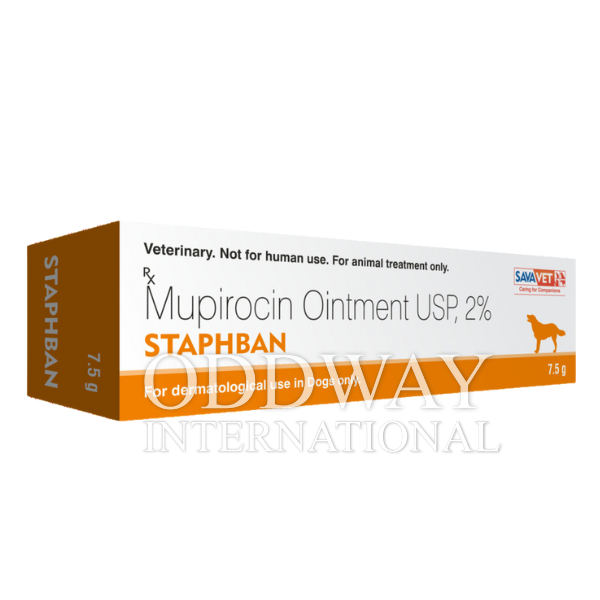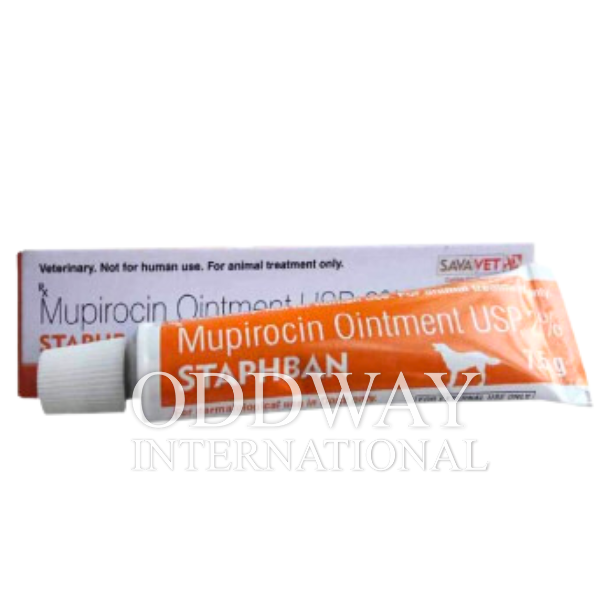

Shipping Options
We offer a variety of shipping options, including Express Mail Service (EMS), USPS, DHL, FedEx, TNT, UPS, Aramex, Air Cargo, and sea freight.
Terms and Conditions
- Bulk Orders: You are responsible for any local import duties and taxes in your country.
- For Patients: When ordering prescription medicines for personal use, or for a friend or relative, a valid medical practitioner's script or prescription is required.
- Return and Refund Policy: Due to the nature of our products, we cannot accept returns or exchanges once a purchase is made. However, in the event of non-delivery, you are eligible for either a 100% refund or a reshipment of your order.





Mikayla Henry –
This ointment is an antibiotic medication used on dogs which treats bacterial infections such as pyoderma and abscesses.
Flynn Desaillly –
Mupirocin Ointment is an antibiotic medication used on dogs which treats bacterial infections such as pyoderma and abscesses.
Natasha Brier –
It is a great ointment for your pet, helps cure hot spots plus skin bacteria. Great!
Katie Perivolaris –
This is the only medication that clears up the rash my cat gets on her chin. Her vet and I have been trying to figure out what my cat is allergic to, with little success. However, this medication clears the rash within a few days and eases the itchiness.
Rose Tudor –
My 13-year-old dog had nasal hyperkeratosis, and Mupirocin Ointment cleared it up quickly. She’s 16+ now and still doing well.